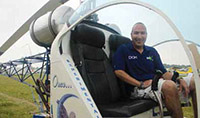
TIME WILL TELL

As I am writing this column, it has been just over two weeks since the U.S. presidential election. President Obama has been re-elected to serve another four years at 1600 Pennsylvania Avenue.
This election polarized the U.S. population. Just about everyone I talked to was firmly entrenched on one side or the other. It was a red vs. blue election. Right before the election, the candidates joked that they were going after the dozens of undecided voters. In the end, billions of dollars were spent in campaign money. The result? We ended up continuing with the status quo. President Obama will serve another term. The Senate is still controlled by the Democrats and the House of Representatives is still controlled by Republicans.
There were some prognosticators that predicted a dive back into recession if President Obama was re-elected. Some predict an economic downturn if the “fiscal cliff” issue isn’t addressed before it automatically kicks in January 1. There are many challenges that both parties face given the global economic situation. Time will tell how our economy fares in the near future.
President Obama has been quite vocal against business aviation. Instead of promoting business aviation’s value, he has chosen to demonize that whole segment of our industry and ignore the vast amount of jobs that depend on business aviation. Time will tell how business aviation fares in the next few years.
I just got back from the Aircraft Distributors and Manufacturers Association (ADMA) conference which was held at Marco Island, FL November 12-15. It was a productive conference for the D.O.M. team, and we had a lot of meetings at the conference with aviation manufacturers and distributors.
During those meetings, I heard a few examples of how companies are starting to make business decisions based on the current political situation in Washington. One of the most surprising was a company that has 53 employees and has been enjoying significant growth over the past few years. The vice president of the company shared that business is growing so fast they could easily hire a dozen more employees because of the workload. Yet, she shared that they were actually considering laying off four employees so that they could stay under the 50-employee mark where the Obamacare healthcare mandates kick in.
I was following a discussion thread on the NBAA air mail this past weekend regarding contract maintenance. The thread started by a company looking to hire some contract maintenance personnel to assist the company’s DOM with an upcoming inspection. The thread quickly became a heated discussion between some thinking companies should hire full-time mechanics (with benefits) to meet maintenance needs while others cited the benefits of using contract maintenance as needed to meet occasional spikes in demand. I have experienced both sides of the fence. One company I worked for did not hire contract mechanics. As work demand increased or decreased, mechanics were layed off or hired. In another case, the company hired enough mechanics to meet regular maintenance needs and hired contract mechanics on an as-needed basis when temporary spikes in demand occurred. There were just about no layoffs at that company in the years I worked there.
It seems that more companies are leaning towards the contract workers model these days in these challenging economic times. Time will tell if this is a temporary trend or a permanent shift in corporate thinking.
As a final example of these changing times, my daughter just got a promotion. She works full time at a local credit union. She has been working as a bank teller there for a year and a half, and has been promoted to a loan officer. Her promotion means an increase in pay along with increased learning/training opportunities. She has also had a nice benefits package since she started working there. To save money, the credit union decided to hire two part-time tellers to fill her previous job. Each teller will work less than 30 hours a week and the credit union will not provide them with any benefits.
Can the credit union continue to hire this way? Will increased turnover as these part-timers leave for better jobs make the company re-consider its hiring policy in the future? Time will tell.
In the end, there are many outside factors that can affect our businesses. Despite this, we have a lot of control over our destiny. We can choose to treat our employees and coworkers with respect. We can choose to have positive attitudes. We can choose to work hard and treat our customers well. Time has told time and time again that hard work and perseverance are critical parts of success in business and in life.
Thanks for reading, and we appreciate your feedback!
 Joe Escobar | Editorial Director
Joe Escobar | Editorial Director
